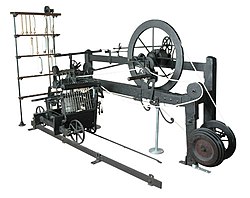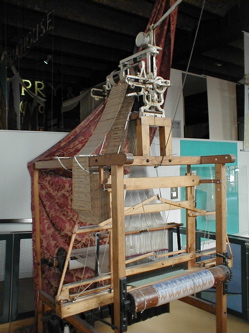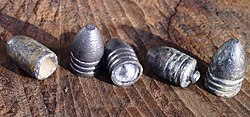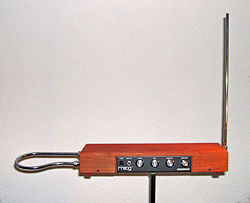The list
A to F









- Abney level – William de Wiveleslie Abney
- Aldis lamp – Arthur Cyril Webb Aldis [1]
- Aldrin – Kurt Alder [2]
- Alexanderson alternator – Ernst Alexanderson
- Algorithm – Muḥammad ibn Mūsā al-Khwārizmī [3]
- Anderson shelter – John Anderson, 1st Viscount Waverley [4]
- Anderton Shearer Loader – James Anderton [5]
- Appertization – Nicolas Appert
- Archimedes' screw – Archimedes
- Argand lamp – Aimé Argand [6]
- Armstrong breech-loading gun – William Armstrong, 1st Baron Armstrong
- Armstrong's acid – Henry Edward Armstrong [7]
- Austenite – William Chandler Roberts-Austen [8]
- Auston switch – David H. Auston
- Avtomat Kalashnikova (AK-47) – Mikhail Kalashnikov
- Bailey bridge – Donald Bailey
- Bakelite – Leo Baekeland
- Barker code – Ronald Hugh Barker
- Barlow lens – Barlow's wheel – Peter Barlow [9]
- Bath Oliver – William Oliver
- Beaufort scale – Sir Francis Beaufort
- Beecham's Pills – Thomas Beecham
- Belisha beacon – Leslie Hore-Belisha, 1st Baron Hore-Belisha
- Benedict's reagent – Stanley Rossiter Benedict [10]
- Benson raft – Simon Benson [11]
- Bessemer converter – Henry Bessemer
- Billinghurst Requa Battery – William Billinghurst and Josephus Requa
- Birch gun – Noel Birch [12]
- Bird's Custard – Alfred Bird
- Biro – László Bíró
- Blacker Bombard – Stewart Blacker
- Bloomers – Amelia Bloomer
- Botts' dots – Elbert Dysart Botts
- Bourdon gauge – Eugène Bourdon
- Bowden cable – Ernest Monnington Bowden
- Bowie knife – James Bowie
- Bowler hat – Thomas and William Bowler
- Bradshaw's Railway Guide – George Bradshaw
- Braille – Louis Braille
- Bramah Press – Joseph Bramah
- Brannock device – Charles F. Brannock
- Brennan torpedo – Louis Brennan [13]
- Brougham – Henry Brougham, 1st Baron Brougham and Vaux
- M1918 Browning Automatic Rifle – John Browning
- Büchner funnel, Büchner flask – Ernst Büchner
- Bunsen burner – Robert Bunsen
- Burr Arch Truss – Theodore Burr [14]
- Callanetics – Callan Pinckney
- Cardigan – James Brudenell, 7th Earl of Cardigan
- Carnot cycle, Carnot heat engine – Nicolas Léonard Sadi Carnot
- Cassegrain telescope – Laurent Cassegrain
- Catherine Wheel – Catherine of Alexandria
- Chippendale chair, Chippendale furniture – Thomas Chippendale
- Clerihew – Edmund Clerihew Bentley
- Coade stone – Eleanor Coade
- Codd-neck bottle – Hiram Codd
- Coddington magnifier – Henry Coddington
- Colt revolver – Samuel Colt
- Coffey still – Aeneas Coffey
- Congreve rocket – Sir William Congreve, 1st Baronet
- Crompton's mule – Samuel Crompton
- Crookes tube – William Crookes [15]
- Cunningham – Briggs Cunningham
- Daguerreotype – Louis Daguerre
- Dalén light – Gustaf Dalén
- Daly detector – Norman Richard Daly
- Daniell cell – John Frederic Daniell
- Davenport desk – Captain John Davenport
- Davis Gun – Cleland Davis
- Davy lamp – Humphry Davy
- Derrick – Thomas Derrick
- Derringer – Henry Deringer
- Dewar flask – James Dewar
- Diesel engine, diesel fuel – Rudolf Diesel
- Dimroth condenser – Otto Dimroth
- Divers's solution – Edward Divers
- Dr. Martens – Klaus Märtens
- Dolby noise-reduction system – Ray Dolby
- Doppler radar – Christian Doppler
- Draisine – Karl Drais
- Edison effect (Thermionic emission) – Thomas Edison
- Edison screw – Thomas Edison
- Ehrlich's reagent – Paul Ehrlich
- Éolienne Bollée – Ernest Sylvain Bollée
- Ericsson engine – John Ericsson
- Erlenmeyer flask – Emil Erlenmeyer
- Euclidean geometry – Euclid
- Fairbairn–Sykes fighting knife – William Ewart Fairbairn and Eric Anthony Sykes
- Faraday cage – Michael Faraday
- Farrimond friction hitch – Barry Farrimond
- Ferris wheel – George Washington Gale Ferris Jr.
- Flinders bar – Matthew Flinders
- Foley catheter – Frederic Foley
- Foucault pendulum – Léon Foucault
- Francis turbine – James B. Francis
- Franklin stove – Benjamin Franklin
- French drain - Henry F. French
- Fresnel lens – Augustin-Jean Fresnel
- Friedrichs condenser – Fritz Walter Paul Friedrichs
- Frost Airship Glider – William Frost
G to M








- Galil – Yisrael Galil
- Gallup Poll – George Gallup
- Galvanometer, galvanic cell – Luigi Galvani
- Garand – John Garand
- Gatling gun – Richard Jordan Gatling
- Gatso cameras – Maus Gatsonides
- Geiger counter – Hans Geiger
- Geiger–Müller tube – Hans Geiger and Walther Müller
- George Foreman Grill – George Foreman
- Gillette safety razor – King Camp Gillette
- Gladstone bag – William Ewart Gladstone
- Glauber's salt – Johann Rudolf Glauber
- Gore-Tex – Bill Gore
- Graham condenser – Thomas D. Graham
- Graham cracker – Rev Sylvester Graham
- Gramme dynamo – Zénobe Gramme
- Gregorian telescope – James Gregory
- Guillotine – Joseph-Ignace Guillotin
- Gurney Stove – Goldsworthy Gurney [16]
- Halkett boat – Peter Halkett
- Hallidie ropeway – Andrew Smith Hallidie
- Halligan bar – Hugh Halligan
- Hammond organ – Laurens Hammond
- Heimlich Maneuver – Henry Heimlich
- Hele-Shaw clutch – Henry Selby Hele-Shaw
- Henry rifle – Benjamin Tyler Henry
- Higgins boat – Andrew Higgins
- Hobbs Meter – John Weston Hobbs [17]
- Holter Monitor – Norman Holter [18]
- Hoover – William Henry Hoover
- Horlicks – James and William Horlick
- Horsley–Clarke apparatus – Victor Horsley and Robert H. Clarke
- Horstmann suspension – Sidney Horstmann
- Howell torpedo – John Adams Howell [19]
- Humphrey pump – H. A. Humphrey
- Hutchinson Patent Stopper – Charles G. Hutchinson
- Inglis Bridge – Charles Inglis
- Jacuzzi – Candido Jacuzzi
- Jacquard loom – Joseph Marie Jacquard
- Josephson junction – Brian David Josephson
- Kalashnikov – Mikhail Kalashnikov
- Kaplan turbine – Viktor Kaplan
- Kay's flying shuttle – John Kay
- Kégresse track – Adolphe Kégresse [20]
- Kelvin bridge – William Thomson, 1st Baron Kelvin
- Ketchum Grenade – William F. Ketchum
- Kilner jar – John Kilner
- Kipp's apparatus – Petrus Jacobus Kipp
- Krarup cable – Carl Emil Krarup
- Land Camera – Edwin H. Land
- Langmuir probe – Irving Langmuir
- Leigh light – Humphrey de Verd Leigh
- Leotard – Jules Léotard
- Leslie speaker – Donald Leslie
- Lewis gun – Isaac Newton Lewis
- Littlejohn adaptor – František Janeček
- Loganberry – James Harvey Logan
- Lyot filter, Lyot stop and Lyot depolarizer – Bernard Lyot
- Macadam, tarmac – John Loudon McAdam
- Machmeter – Ernst Mach
- Mackintosh – Charles Macintosh
- Mae West – Mae West
- Mallet's Mortar – Robert Mallet
- Manby Mortar – George William Manby [21]
- Mansard roof – François Mansart
- Marconi rig – Guglielmo Marconi
- Mason jar – John Landis Mason
- Masonite - William H. Mason
- Mausoleum – Mausolus
- Maxim gun – Hiram Stevens Maxim
- McCormick reaper – Cyrus McCormick
- Melba toast, Peach Melba, Melba sauce – Nellie Melba
- Melvillade – Robert Melville
- Mercator projection – Gerardus Mercator
- Mercerised cotton – John Mercer
- Michelson interferometer – Albert Abraham Michelson
- Mills bomb – William Mills
- Minié ball, Minié rifle – Claude-Étienne Minié [22]
- Molotov cocktail – Vyacheslav Molotov
- Momsen Lung, Charles B. Momsen [23]
- Moog synthesizer – Robert Moog
- Morse code – Samuel Morse
- Muntz metal – George Frederic Muntz
- Murphy bed – William Lawrence Murphy
N to S






- Napier's bones – John Napier
- Newcomen steam engine – Thomas Newcomen
- Newtonian telescope – Isaac Newton
- Newton's Cradle – Isaac Newton
- Nissen hut – Peter Norman Nissen
- Nordenfelt gun – Thorsten Nordenfelt
- Northrop Loom – James Henry Northrop
- Odhner Arithmometer – Willgodt Theophil Odhner [24]
- Odón device – Jorge Odón [25]
- Ormerod link – Edward Ormerod
- Ostwald viscometer – Wilhelm Ostwald
- Owen submachine gun – Evelyn Owen
- Parkesine – Alexander Parkes
- Pasteurization – Louis Pasteur
- Patchett gun – George William Patchett
- Pavlova – Anna Pavlova
- Payne's grey – William Payne
- Peavey – Joseph Peavey
- Pelton turbine – Lester Allan Pelton
- Penning trap – Frans Michel Penning
- Petri dish – Julius Richard Petri
- Phillips screw – Henry F. Phillips
- Pilates – Joseph Pilates
- Pimm's – James Pimm
- Pinchbeck – Christopher Pinchbeck
- Pintsch gas – Julius Pintsch
- Pitman shorthand – Isaac Pitman
- Pitot tube – Henri Pitot
- Plimsoll line – Samuel Plimsoll
- Prince Rupert's Drop – Prince Rupert of the Rhine
- Pulaski – Ed Pulaski
- Pupin coil – Mihajlo Idvorski Pupin
- Puretic power block – Mario Puratić
- Prusik – Karl Prusik
- Raglan sleeve – Fitzroy Somerset, 1st Baron Raglan [26]
- Raman spectroscopy – C. V. Raman
- Rawlplug – John Joseph Rawlings
- Richter magnitude scale – Charles Francis Richter
- Ripley machine gun – Ezra Ripley
- Rorschach test – Hermann Rorschach
- Rozière balloon – Jean-François Pilâtre de Rozier
- Rubik's Cube – Ernő Rubik
- Rumford fireplace – Benjamin Thompson
- Salk vaccine – Jonas Salk
- Salter's duck – Stephen Salter
- Sam Browne belt – Sam Browne
- Sandwich – Earl of Sandwich
- Savery engine – Thomas Savery
- Saxophone – Adolphe Sax
- Scavenger's daughter – Leonard Skeffington (or Skevington)
- Scheele's Green – Carl Wilhelm Scheele
- Schick test – Béla Schick
- Shrapnel shell – Henry Shrapnel
- Sousaphone – John Philip Sousa
- Southern blot – Edwin Southern
- Soyer stove – Alexis Soyer
- Spragg Bag – Terry Spragg
- Sprengel explosives, Sprengel Pump – Hermann Sprengel
- Stabinger viscometer – Hans Stabinger
- Stanhope – Henry FitzRoy Stanhope
- Stark spectroscopy – Johannes Stark
- Stelzer engine – Frank Stelzer
- Stephenson's Rocket - Robert Stephenson
- Sten – Reginald V. Shepherd, Harold Turpin, Enfield
- Stetson – John Batterson Stetson
- Stiefografie – Helmut Stief
- Stillson wrench – Daniel Chapman Stillson
- Stirling engine – Rev. Robert Stirling
- Stockbridge damper – George H. Stockbridge
- Stokes mortar – Wilfred Stokes
- Strowger switch – Almon Brown Strowger
- Swallow float – John C. Swallow
T to Z






- Taj Mahal - Mumtaz Mahal
- Taser – Tom Swift electric rifle
- Tesla coil, Tesla turbine – Nikola Tesla
- Theremin – Léon Theremin [28]
- Thompson submachine gun – John T. Thompson
- Tobin tax — James Tobin
- Tupperware – Earl Silas Tupper
- Ubbelohde viscometer – Leo Ubbelohde
- Uzi – Uziel Gal
- Venn diagram – John Venn
- Vernier scale – Pierre Vernier
- Very pistol, Very flare – Edward Wilson Very
- Vigreux column – Henri Vigreux
- Voltaic pile – Alessandro Volta
- Wagner tuba – Richard Wagner
- Wankel engine – Felix Wankel
- Wardian case – Nathaniel Bagshaw Ward
- Waterhouse stop – John Waterhouse
- Watt's linkage & Watt steam engine – James Watt
- Wedgwood porcelain – Wedgwood family
- Welin breech block – Axel Welin
- Wellington boot – Duke of Wellington
- Wells turbine – Alan Arthur Wells
- Westinghouse air brake – George Westinghouse
- Weston cell – Edward Weston
- Wheatstone bridge – Charles Wheatstone
- Whitehead Torpedo – Robert Whitehead [29]
- Whitworth thread – Joseph Whitworth
- Wiegand wire – John R. Wiegand
- Wilhelmy plate – Ludwig Wilhelmy
- Wilson chamber – Charles Thomson Rees Wilson
- Winchester rifle – Oliver Winchester
- Windsor knot – Edward VII of the United Kingdom
- Winogradsky column – Sergei Winogradsky [30]
- Wollaston landscape lens – William Hyde Wollaston
- Wollaston wire – William Hyde Wollaston
- Woodruff key – W.N. Woodruff
- Wood's glass – Robert W. Wood
- Yablochkov candle – Pavel Yablochkov
- Yale lock – Linus Yale, Jr.
- Zamboni – Frank Zamboni
- Zamboni pile – Giuseppe Zamboni
- Zeppelin – Ferdinand von Zeppelin